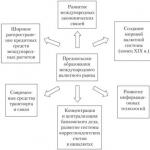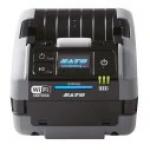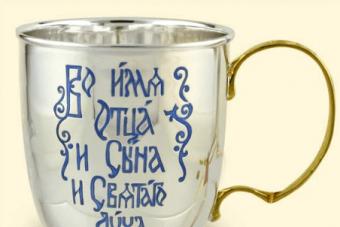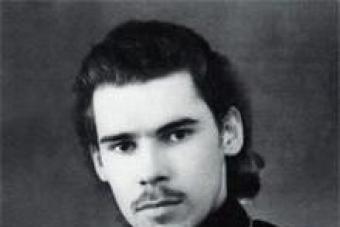Sweating is a natural process that usually does not indicate any health problems. But only up to a certain moment. If a child sweats often and intensely, and the sweat is cold, it is no wonder that this fact can seriously excite parents. A cold sweat in a crumb can appear at any time. If this happens, the condition of the child should be closely monitored, because the reasons for its appearance range from the most harmless to the most serious. About this and will be discussed in this article.
Possible reasons
Natural
Cold sweat can appear for various reasons. At healthy child this usually happens when external factors, When:
- the room is too hot;
- he is dressed warmer than necessary;
- he sleeps under a warm blanket;
- the bed is too soft;
- the child is very active and impressionable.
Also, do not forget that all people are different: for some, this is a familiar phenomenon, and for some, it is a sign of problems in the body. To make it clear why exactly your child is sweating, you need to observe his general condition. Notice when this happens: during (after) sleep or when the baby is active? Are there any accompanying symptoms?
If the external factors that provoke the release of cold sweat are eliminated, but the problem does not disappear, its root should be sought elsewhere. Here's what else it could be:
- Overweight in a child. In this case, he will be more prone to sweating than his skinny comrades.
- Application of some medicines or funds traditional medicine . When using both, sweating can be a side effect, but their diaphoretic effect is sometimes deliberately counted on by parents. For example, when home treatment colds.
- Spicy dishes, spices on the menu (especially in the evening). They increase blood circulation, and because of this, the child's sweating becomes more intense.
- scary dreams(or just very bright and saturated), as well as neuroses, fear and other similar states. The child may even wake up in a cold sweat in the middle of the night. There is a direct relationship here: the work of the sweat glands is directly regulated by the nervous system.
- Heredity. It happens that nothing helps just because the problem is genetically determined. Think about whether the baby has relatives for whom cold sweat is also a frequent occurrence.
Pathological
If none of the factors listed above are suitable, pathology may be the cause. Unfortunately, no one is immune from this. There are a number of diseases, one of the symptoms of which is cold sweat. For example:
1. Rickets- a disease associated with a lack of vitamin D, which results in a violation of the musculoskeletal system.
2. Hyperhidrosis – excessive sweating in some areas or all over the body completely. The phenomenon is not dangerous to health, but significantly reduces the quality of life of the child.
3. Diseases of the heart and blood vessels- then the picture will be supplemented by others anxiety symptoms which are hard to miss.
4. Violations endocrine system - Quite often, cold sweat indicates problems with the thyroid gland.
5. Viral infections- in this case, additional symptoms will be a runny nose, cough and general weakness. After recovery, the child may have a cold sweat for some time. This is a sign that the body is weakened and needs time to recover. The child during this period needs a sparing regimen, do not load him heavily for another week and a half, this will give him the opportunity to fully recover.
6. Poisoning- with intoxication of the body, cold sweat is also quite common. Another child will be disturbed by nausea, vomiting, fever, chills, abdominal pain, upset stool. The baby will be pale, lethargic and will not want to eat anything.
A little about babies
Separately, it is worth mentioning the features of sweating in infants. Cold sweat is not unusual for them. On the contrary, the organism can very often respond to external circumstances in this way. After all, he is only learning to control body temperature, and thermoregulation is still far from perfect.
Many new parents find it strange that the baby is covered in perspiration during feeding. But for him, this is a real job - to extract milk from the mother's breast. He pins a lot of effort, and sweat in this case is considered a variant of the norm.
Oddly enough, teething may well cause cold sweats in babies. This difficult period is stressful for the body, because the immune system becomes weaker and more vulnerable. And the child feels significant discomfort, because the sensations, frankly, are not pleasant. In such circumstances, the appearance of a cold sweat is not something strange or surprising.
What should parents do
Before panicking, adults need to check whether the conditions of the environment in which the baby is located are comfortable. In many cases it is enough to eliminate natural causes increased sweating so that the problem resolves itself.
- Maintain optimal conditions for humidity and air temperature: 50-60% and 18-22 degrees. Ventilate the room regularly.
- Dress your child according to the conditions in which he is. The baby should not be either hot or cold, so you don’t need to wrap him up, but you shouldn’t dress too lightly either.
- The same goes for the blanket. It's good when the crumbs have two: warm and light. When choosing how to cover the baby, it is important to correctly assess the situation in order to avoid overheating or hypothermia.
- Use a special orthopedic mattress so that the bed is elastic. All fabrics from which bed linen and accessories are made must be 100% natural. Synthetics violate the process of thermoregulation in the body, the body does not breathe.
- Closer to bedtime, limit outdoor games and organize calm leisure for the child. Reading, modeling, drawing, Board games- all this will bring the baby to emotional balance and help to avoid overstrain, due to which children also have cold sweats.
A visit to the pediatrician should not be postponed if:
- the child sneezes, coughs, he has rhinitis, inflammation of the eyes, sore throat (this may be a disease of an infectious or allergic nature);
- sweat Strong smell reminiscent of acetic acid or ammonia;
- sweat is released unevenly, for example, only the head and (or) limbs sweat noticeably, and the rest of the body is dry;
- the body temperature of the baby is lowered;
- he refuses food or eats very little;
- there were problems with sleep;
- sweat sticky to the touch;
- the baby sweats, even at rest;
- the baby often shudders in a dream.
First of all, you should get a consultation with a pediatrician, and then, you may need to be examined by narrow specialists (neurologist, endocrinologist, cardiologist or allergist).
When a child needs urgent help
There are times when cold sweat in children may indicate that serious disorders are occurring in the body. Then every second counts, so parents should call an ambulance as soon as possible. This will be required if, in addition to cold sweat, you notice in a child:
- weak shallow breathing;
- body temperature is below normal, 35 degrees or less;
- coughing;
- confusion or loss of consciousness;
- bluish tint of lips, arms and legs.
Often, such symptoms indicate significant malfunctions in the work of the cardiovascular, endocrine and nervous system. calling ambulance, parents should prepare for possible hospitalization in order to provide emergency care, further examination and treatment in a hospital.
Parents of children under the age of 1 should be especially vigilant. They change everything very quickly, sometimes only a few hours are enough. Therefore, if the condition of the baby causes concern, cast aside all doubts and seek help. Don't delay.
Diagnostics
In order to understand what exactly is happening to the baby, in addition to external examination and collecting complaints, the doctor may prescribe the following studies:
- blood test (general and detailed);
- Analysis of urine;
- neurosonography and ultrasonography cervical spine - if necessary.
You may also need:
- blood test for vitamin D concentration;
- glucose tolerance test;
- external examination of the lymph nodes.
Such a phenomenon as cold sweat is quite common in children. It is important to carefully monitor the condition of the baby and quickly respond to any changes. And do not be afraid to contact the doctors, because they are interested in helping the child get rid of the problem.
Sweating is a normal process in the body for the purpose of thermoregulation and excretion. harmful substances. However, it is these functions of sweating that can cause the development of more serious diseases, especially in children. , especially when the forehead sweats, can be either a symptom or a reason for the development of serious diseases.
Sweating in children can be a signal of serious illness
Provoking factors
Breast cancer can manifest itself in different ways. Of course, parents worry about certain manifestations when they throw their baby into a cold sweat. The reasons may be different:
- too warm place to sleep;
- heat in the baby's room
- excessive activity in overweight babies;
- overly toxic food;
- lack of hygiene.
Usually in such cases it is necessary:
- normalize the temperature in the room to 20-22 degrees Celsius;
- dress the child according to the weather;
- monitor the diet;
- take care of hygiene.
When the necessary measures are taken, and the causes are eliminated, sweating should go away by itself. However, if the child continues to sweat, it is necessary to immediately undergo an examination by a specialist.
Diseases Reported by Cold Sweat
In addition to the usual reasons for excessive sweating, there may be more serious reasons. So, children are prone to this phenomenon when:
- in their body develops a curvature of the bones;
- there is a lack of vitamin D;
- the baby is prone to hyperhidrosis;
- the cardiovascular system works abnormally;
- anomalies in functioning thyroid gland;
- viral diseases of the common cold and flu.

excessive sweating may be due to an allergy to some substance
The presence of viral diseases in the body of a child is also manifested by the presence of an acute cough. Such cases should not be ignored. It is also necessary to urgently visit a doctor and conduct an examination of the baby.
In addition, excessive sweating accompanied rare cough may be a manifestation allergic organism baby to any substances. It is also possible to establish the nature of such a reaction only when examined by a doctor.
Symptoms
Very important Special attention pay attention to the manifestations of excessive sweating. What time of day does the baby sweat, what additional symptoms while being observed. If the baby emits cold sweat during the day, the reason may be in his activity. But if there are certain symptoms, then you need to pay special attention to the following:
- the baby's sweat exudes a strongly noticeable ammonia smell;
- sweating occurs profusely only in certain areas;
- the temperature in the child's body is abnormally low.
When there are no such symptoms, then there is no reason to panic, since most likely the causes are domestic, which are eliminated only by the efforts of the parents.
First teeth
At the time when a child's first teeth erupt, his body begins to react to pain V oral cavity by perspiration. This is considered normal.

When teeth are being cut, sweating is an absolutely normal process.
But at the same time, it is during this period that the child's body becomes vulnerable to various infectious diseases and requires special care. Everyone needs possible ways reduce cold sweating, monitor symptoms.
Frequent baths will help with this. medicinal herbs. Normalization of room temperature and frequent walks on fresh air will also positive influence on the growth and development of the child without risk.
Heredity
Excessive cold sweating can be hereditary disease, which is medically known as Riley-Day disease. In this disease, disorders appear at the genetic level and it is impossible to get rid of it. For this reason, there is no need to become depressed and look for a miraculous cure. It remains only to fight sweating with traditional means.
In addition to excessive cold sweating, this syndrome may be accompanied by disorders of the digestive system and respiratory tract. The presence of these disorders is already due to the initial set of chromosomes, so they will have to be treated regularly.
If the child does not experience any problems during sweating: breathing and stool are normal, then there is probably nothing to worry about, but it is still worth getting tested.
Who to contact?
Of course, the first doctor to whom you need to show the child is a pediatrician. You need to go to him, while, in addition to cold sweating, the baby has:
- abnormal temperature;
- acute cough and profuse runny nose;
- sweating immediately after waking up;
- various skin anomalies;
- excessive secretion of tears;
- unstable sleep;
- unwillingness to eat.

It is important to contact your pediatrician immediately
The reasons, of course, will be revealed at the doctor's appointment, and he will refer you to a specialist. However, if there is the following symptoms you can immediately contact the endocrinologist:
- perspiration in a state of calm;
- sharp ammonia smell of sweat secretions;
- the baby wakes up in a cold sweat;
- shuddering and other tics are observed;
- sweat on forehead sticky to the touch;
- the child is taking medication.
But in no case should you treat the child yourself. Why? Yes, simply wrong conclusions about the symptoms and diagnosis can lead to the fact that your efforts will only aggravate the situation.
First aid
If there are some symptoms, the child needs urgent medical attention.
A decrease in body temperature below normal with colds and flu remains at risk for the heart and blood vessels. It can also mean abnormal circulation. In such cases, complications can occur at any time, so it is better to play it safe and call an ambulance.
If, after suffering an acute infectious disease with the use of potent drugs in a child, sharp and regular shudders and convulsive movements are observed, then it is possible in a child acute disorders nervous system and endocrine organs.
The child may experience sharp pains And headache. So call qualified medical care will be very helpful. With almost any complications, you should not risk the health of the child, it is better to play it safe and call an ambulance.

It is not worth risking the health of the child, it is better to play it safe
The normal development of the baby is impossible without good rest. The sleep of the child should be strong and calm. In some cases, parents notice that the baby sweats a lot at night. Why is this happening? Is it normal? Sweat is manifested in every person, it is needed for thermoregulation of the body. Children are very active, mobile, never sit still, and sweat a lot.
The reasons for the nighttime activity of the sweat glands can be very different: insufficient hygiene, hot climate, malnutrition, too warm bed and night clothes, and diseases internal organs. In addition, children grow up and many of their systems develop. These include both the activity of sweat receptors and the formation of the autonomic nervous system during this period.
Children become covered with perspiration in a dream with manifestations of allergies, diathesis, disorders nervous activity. Newborns are very emotional, they may sweat from fear or joy, including during sleep. But sweating is often a symptom of rickets, which develops with a lack of vitamin D. The problem should be solved as quickly as possible, so you need to contact your pediatrician.
Among the reasons for the appearance of cold sweat in a child during sleep, there are safe ones, but there are also factors that indicate the development of the disease. You need to get to the bottom of the problem before taking action. In many cases, you need to consult a pediatrician, sometimes an endocrinologist, neurologist or cardiologist.
Possible reasons why a child sweats in a dream:
- Unfavorable temperature in the baby's room. For a comfortable stay of the child, the thermal regime of the room is very important. The humidity of the air is also taken into account - it should not be too dry or, on the contrary, humid. For babies ideal temperature- 20-22 degrees. If the room is hot, then the children sweat.
- Clothes for sleep are chosen incorrectly, the baby is covered with a blanket that is too warm. Parental care is often superfluous. During winter, if the room is cool, the baby should wear pajamas, and in summer time The best sleeping clothes are T-shirts and panties made of cotton. In the warm season, you can not cover the crumbs with a thick blanket, you can use a bedspread or diaper.
- Age-related changes that cause disorders of the nervous system. During the period of active development of the baby, many changes take place in his body. The nervous system sometimes can not cope with leaps and bounds development of the child's activities. Hyperactive children are especially susceptible to such conditions.
- Colds, SARS. Diseases viral nature, as well as high temperature for other reasons, lead to excessive sweating children while sleeping. The problem may remain even after recovery. This means that the baby's body is not yet strong after the illness, and the immune system is weakened. Abundant sweating helps to resist infection, lower the temperature, it is excreted through the pores excess fluid, because children at this time drink more than usual.
Constantly monitor the condition of the child - cold sweat can have more deep reasons associated with disruption of the internal organs.
The above reasons can be eliminated, and the sweating of the baby will remain in the past.

Cold sweat as a symptom of the disease
It can be difficult to understand on your own why a child sweats at night. Only an experienced specialist, based on the results of the tests, will be able to establish the cause if it is hidden inside the body.
Diseases in which children are covered with cold sweat:
- Diseases of the heart and blood vessels. Sweating can occur at any time of the day. Acute heart failure is accompanied by shortness of breath, cold hands and feet, wheezing. An ambulance must be called immediately.
- Hyperhidrosis - increased activity sweat glands. In case of illness, you need to pay more attention to body hygiene, use herbal decoctions to wipe problem areas. It is imperative to find out the cause of the disease before starting treatment.
- Vitamin D deficiency and signs of a related disease - rickets. The disease manifests itself in children under 2 years of age, therefore, in younger age so it is important to see your pediatrician regularly. To determine the level of a vitamin, you need to do a simple analysis.
- In a child, cold sweat during sleep may be due to allergies. The reaction manifests itself in babies in different ways, up to anaphylactic shock, so the child needs enhanced monitoring even at night.
- The problem may be caused by disruption of the endocrine and digestive systems. You should consult a specialist and start treating the child, you may need to follow a diet.
- Cold sweat in babies is observed with tuberculosis, chronic diseases nasopharynx and respiratory system(tonsillitis, adenoiditis, pneumonia). Most often, the child is worried about a runny nose and cough.
If you suspect similar diseases you need to contact a pediatrician who will prescribe tests, select treatment individually for the child, and, if necessary, refer to other specialists.
Create comfortable conditions for a child is the main task of every mother. Her desire to raise a healthy child helps to properly care for the baby.
Simple Tips:
- Cleanliness in the children's room. Maintaining optimal temperature and humidity. Daily airing of the room.
- Daily bathing of the newborn. For older children - every 2-3 days. If the baby is sweaty, be sure to rinse it in the shower before going to bed.
- Do not let your child play outdoor games in the evening, as there is an overexcitation of the nervous system. It is difficult for the baby to fall asleep, and his rest will be inferior.
- Nutrition should provide the baby's body with all essential substances: vitamins, minerals and amino acids.
- For pajamas and bedding choose natural breathable materials. Synthetic things create Greenhouse effect, and call profuse sweating.
- The blanket with which you cover the baby at night should be appropriate for the season. In the hot period, you should use a diaper, a sheet, a light blanket.
- During the introduction of complementary foods, keep a special notebook in which you enter new products. Subsequently, it will be easy to find out why the baby has an allergy. When breastfeeding, everything that the mother ate is also indicated there.
Children's night sweats It has different reasons and forms of manifestation. One child becomes wet palms or forehead, others are covered with sweat completely.
Eliminating external factors will solve the problem, and the baby will sleep peacefully. If the reason excessive sweating during sleep is a malfunction of the internal organs and systems, you need to contact a pediatrician and undergo an examination.
The process of sweating in children is considered quite natural. If there is a cold sweat in a child, then it causes anxiety in parents. Intense sweating can occur in absolutely any state of the baby, so you need to monitor it. Cold sweat - indicates the presence of a cold or illness infectious nature. In infants, these symptoms can be triggered by age-related changes.
Causes
Causes of cold sweat are often natural physiological process sweating. They may hide in serious illnesses, For example:
- rickets;
- pathology of the heart, blood vessels;
- thyroid disease;
- colds caused by viruses.
If the baby has a cold sweat and cough, then this may indicate the presence viral infection and you need to see a doctor to diagnose the disease. Sometimes children sweat for no reason, but low temperature bodies are completely normal phenomenon due to the characteristics of the organism.
Many complex and dangerous diseases provoke intense sweating, signaling the presence of violations of the internal organs. If cold sweat and vomiting are observed, then it is necessary to call an ambulance, as this can lead to severe intoxication organism.
Important! To understand why a child sweats, it is imperative to monitor his general condition.
To determine the presence of serious violations, it is worth considering symptoms such as:
- during sweating, the smell of ammonia is felt;
- sweating unevenly;
- low temperature body.
A similar condition can be observed during teething, as the baby experiences pain. Dr. Komarovsky notes that if children have cold sweats and low temperatures, then this is a reason to consult a doctor. Sometimes similar manifestation may be due to the presence of tuberculosis or increased intracranial pressure, so it is necessary to pass thorough examination.
During sleep
Often, parents are worried about cold sweat during sleep that occurs in a baby of any age. This phenomenon may indicate overheating. A baby can react to a change in temperature three weeks after birth. Sometimes increased sweating at night is considered a sign of serious disorders of the body.

If children have significant sweating during sleep, it often indicates an increased excitability of the nervous system. If in the room normal temperature, but the baby sweats, which means that the nervous system of the crumbs is not able to cope with the active development of the body. The emotional upheavals experienced, impressions or experiences received throughout the day can also affect the state of children.
Important! Parents need to ensure that the baby, before going to bed, does not play outdoor games and does not experience strong emotional upheavals.
During and after illness
Many parents wonder what cold sweat means in a child and what reasons can provoke it. Often, intense sweating is observed if the baby is sick. In particular similar phenomenon may cause:
- pneumonia;
- SARS;
- cold.
Pneumonia is not always accompanied elevated temperature, it can be completely asymptomatic. During illness, significant sweating often occurs. It is also important to consider the following symptoms:
- lack of appetite;
- malaise;
- chest pain;
- dyspnea;
- dry cough.
Asymptomatic pneumonia results from poor immunity, so the body cannot cope with the infection. Pathogenic microorganisms with blood are transferred throughout the body and cause disturbances in the activity of all organs.

One of the initial signs of a cold and SARS is cold sweat, especially at night. During sweating, the body tries to get rid of accumulated toxins. This means that the immune system is trying to fight off the infection. Abundant sweating in ARVI indicates the presence of complications provoked by the disease. If during a cold the baby was given a lot of antipyretics, then after the illness there may be significant sweating, because the body temperature drops significantly.
A low temperature can be observed after antibiotics and then intense sweating occurs. If during antibiotic treatment the body temperature drops significantly, then it is necessary to visit a doctor, and he will select another medication that does not cause a similar reaction in the body.
Often there is a cold sweat after the temperature, if it was very high. This is considered normal state if the sweating is uniform, otherwise it is necessary to consult a doctor.
Important! Profuse sweating suggests that not all pathogens were destroyed after treatment.
Cold sweat in infants: causes
Cold sweat in a child under one year old can be dangerous, because it indicates the presence of a number of disorders occurring in the body and the occurrence dangerous diseases. Sometimes you need to show the baby to an endocrinologist or a neurologist, since excessive sweating is considered the cause of serious pathologies. You should contact a neurologist if:
- profuse sweating is observed when the child is in calm state;
- the baby shudders periodically;
- baby takes strong medicines;
- to the touch, the discharge resembles a paste.
If the baby has disorders of the nervous system, then his head sweats a lot. However, such symptoms can signal the presence of problems of the endocrine system and disorders of the heart.

Excessive sweating can be observed in infants and after vaccination, because some vaccines provoke the occurrence side effects. It is necessary to consult a doctor after vaccination when such conditions are observed as:
- cold sweat;
- redness or pallor skin;
- dyspnea.
If you do not consult a doctor in a timely manner, then there may be a significant allergic reaction and serious disorders in the body.
How is the treatment carried out
If there is a problem heavy sweating, low temperature in a child, many are wondering what to do and how to treat. During the treatment, it is important to eliminate the cause that provoked profuse sweating. The healing process may take long time, because such a manifestation can be triggered by the presence of complex diseases, for example, diabetes.
The doctor selects special medical preparations. These are drugs that slow down the secretion of cellular level and affecting the functioning of the sweat glands, as well as taking drugs that affect the functioning of the nervous system.
In the treatment of infants, it is necessary to be examined by a neurologist and a psychiatrist, and also to use a mild sedative.
When a cold sweat suddenly appears in a child, this causes panic in parents and is a reason for contacting pediatrician. Deviation of sweating from the norm may indicate the presence of serious diseases. Therefore, it is necessary to respond as quickly as possible to such changes in the health of the child. Sometimes the cause of cold sweating can be an infection that is urgently treated with medicines.
Cold sweat in babies
Reasons for the appearance
If a child is thrown into a cold sweat in a dream, then this is not always a sign of any disease. The child sweats because this is how thermoregulation occurs. Due to the rise in temperature indicators on the street, the body temperature also rises. Because of this, sweat is released, which, when evaporated, cools the skin. With sweat, toxins are released. Sweating can also occur with excessive activity or after running. In this case, the phenomenon does not threaten with danger.
Cold sweat in infants up to a year old may occur due to overheating. Sweat glands normally begin to function only by the age of 5, and before that time, babies react violently to hot weather or sharp drops temperature regime. Also, low temperature causes such a phenomenon. Another manifestation is a lack of vitamin D. Cold sticky sweat testifies to neurological diseases. Other causes of cold sweat:
- colds;
- inappropriate medication;
- hepatitis;
- disease circulatory system;
- hyperfunction of the thyroid gland;
- tuberculosis;
- excessive emotionality.
Insidious ailments
 Pay attention to the baby - if there are any other signs of illness.
Pay attention to the baby - if there are any other signs of illness. If the child is sweaty and coughing, then this is a sure sign of an infectious disease. Here the whole body will be covered with cold sweat. After past illnesses sweating indicates a decrease in immunity. Inflammation of the lungs is characterized by the fact that when the baby sleeps, the whole body is covered with sweat, while there is a fever, and the baby becomes moody. For colds and serious illnesses you should pay attention to such signs:
- smell of ammonia from the body;
- sweating is uneven;
- low temperature and sweating;
- cough and runny nose;
- tearing of the eyes;
- rash;
- high or low temperature;
- lack of appetite;
- disturbed sleep at night.
Other signs
Children under 6 months of age have active metabolic processes, and the appearance of sweat at night or during the day indicates metabolic disorders. Sweating during sleep possible manifestation allergies or a consequence of the eruption of the first teeth. If profuse sweating is observed during the feeding period, then this is not a deviation, the child simply makes an effort to eat, as a result of which sweat appears. Another reason for the failure is possible reaction organism to an insect bite.
When do you need to see a doctor?
If cold forehead in a child, but at the same time it is wet, and uncharacteristic signs are observed, independent guessing of possible diseases will only harm the child. You need to contact your pediatrician. They go to a neurologist or endocrinologist for help with such symptoms:
- sweating occurs even at rest;
- sweat has bad smell, including ;
- after rest, the child is overexcited;
- worried about frequent shuddering;
- there is excessive stickiness of sweat.
Maybe an ambulance is needed?
Uneven sweat, cough and low temperature are symptoms of diseases of the circulatory system, including the heart. Vascular insufficiency manifested by rapid heartbeat and pulsation, chills, while there is a cold and sweaty forehead in the child. In such cases, it is better to call the hospital staff. To confirm the diagnosis, you will need to pass necessary tests and get tested. The most dangerous thing that could be anaphylactic shock. In babies, hysteria is observed, the face becomes numb, throbbing in the head, tinnitus is disturbing, a rash and vomiting are possible. You need to act very quickly, as even a fatal outcome is possible.





